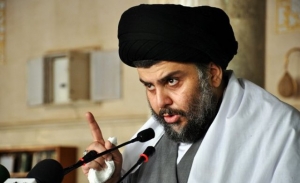
RNA - Al-Sadr said on Wednesday that if the bill is passed, Iraq will no longer be a safe place for the US, and its interests will become the target of attacks by the Iraqis who will never accept the “division of their country.”
"We are obliged to lift the freeze on our military wing … and begin hitting US interests in Iraq and outside it,” said Sadr, who once led the powerful Mahdi Army and still enjoys huge influence among the Shia population.
The draft of the US annual defense bill, which was released on April 27 by the House Armed Services Committee, urges the US government to recognize separate Kurdish and Sunni states and provide them with at least 25 percent of the USD-715-million aid money planned to be given to the Iraqi government to help it fight the ISIL terrorist group. The draft bill also says the figure could even amount to 60 percent of the money, about USD 429 million.
The bill mandates that "the Kurdish Peshmerga, the Sunni tribal security forces with a national security mission, and the Iraqi Sunni National Guard be deemed a country,” adding that doing so “would allow these security forces to directly receive assistance from the United States.”
Sadr said such recognition of the Kurds and Sunnis as separate entities and providing them with support would further divide Iraq along the sectarian lines, saying that the decision, if approved, would be the beginning of a huge disaster.
“The Iraqi people must protect their territory through rejecting such statements..., otherwise a disaster will occur,” Sadr said, calling on the Iraqi government and the parliament to show a strong response to the move.
The United States and its allies have been launching coordinated airstrikes against ISIL in northern Iraq since June 2014. However, the coalition has effectively failed to provide the needed support for the central government in Baghdad, which has devoted huge resources to the battle against Takfiris in various parts of the country.
The US has also supported some Sunni and Kurdish politicians who claim that the Iraqi government’s decisions are biased in favor of the country’s Shia population, clearly seeking to sow discord in the country.
R111/108/C/